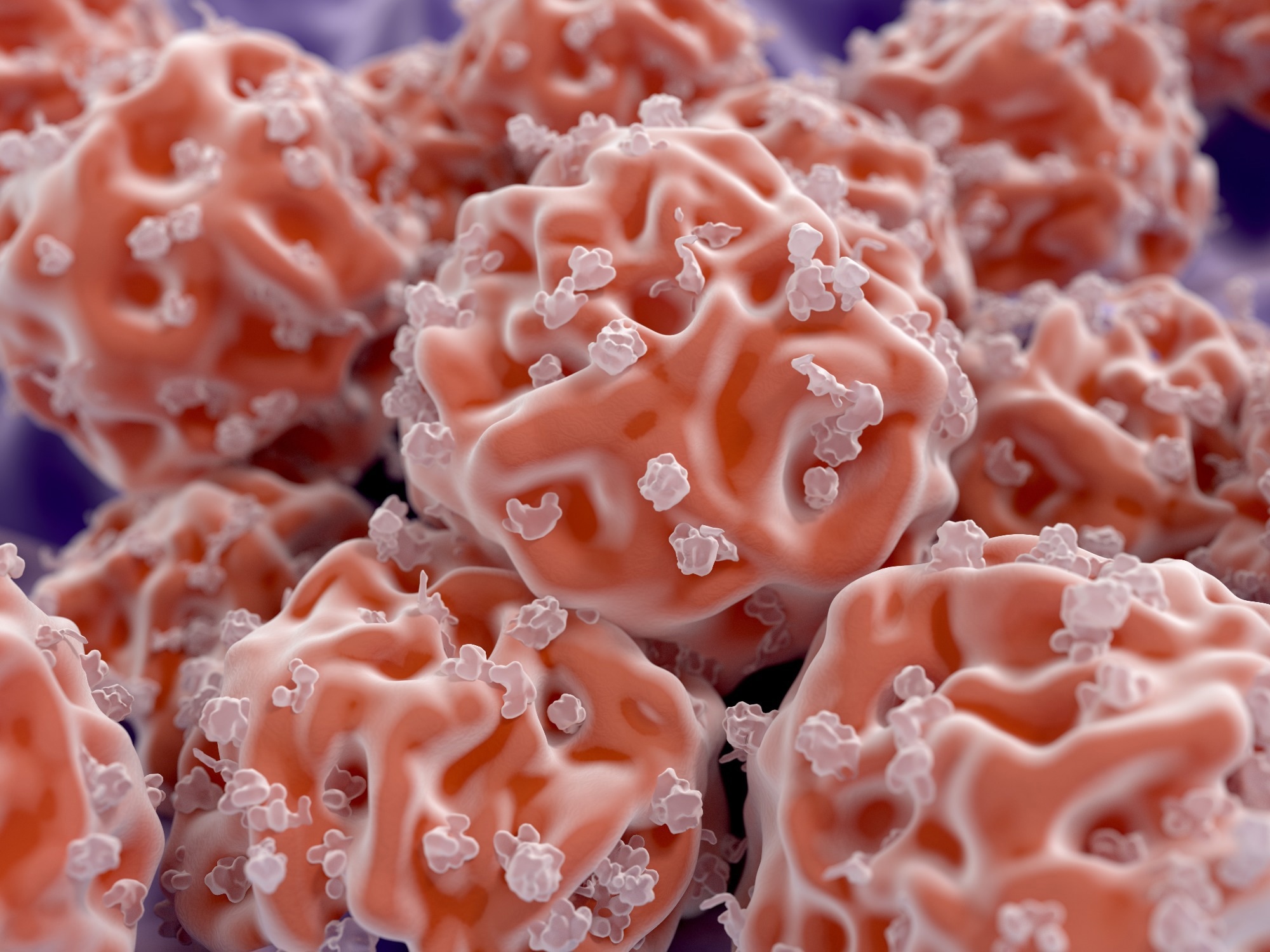Introduction
Reducing ocular graft-versus-host disease symptoms
Identifying early signs of chronic graft-versus-host disease
How bacterium in the gut affects graft-versus-host disease
High dose cyclophosphamide may reduce severe graft-versus-host disease
References
Further reading
Researchers worldwide are exploring ways to minimize the risk of graft-versus-host disease (GvHD) occurring in patients who have received a bone marrow or stem cell transplantation.
 Image Credit: Terelyuk/Shutterstock
Image Credit: Terelyuk/Shutterstock
The disease tends to develop due to differences in the tissue between the donated and the host cells. The cells from the graft (i.e., donation) view the host (i.e., recipient) cells as foreign and begin to attack them. Doctors are ideally looking for a match across five pairs of HLA antigens.
There are two manifestations of the disease, acute GvHD, which tends to develop in the first 100 days after a transplant, and chronic GvHD, which a patient tends to develop beyond the 100-day period. The chronic presentation can continue for more than a year in some people. Researchers are exploring ways of fighting both forms of the disease.
Some recent projects in the fight against GvHD include reducing ocular symptoms, identifying early signs of chronic GvHD, identifying the role gut bacterium play against the effects of the disease, and the use of high-dose cytoreductive agents in severe cases of GvHD.
Reducing ocular graft-versus-host disease symptoms
Ocular graft-versus-host disease can be a symptom of chronic GvHD, the manifestation of the disease that can affect organs beyond the skin, liver, and gut. In this condition, the eyes can become dry and irritable, and the patient can experience blurred vision.
Researchers at the Massachusetts Eye and Ear and Harvard Medical School in the US have studied the effect of the immunosuppressant drug tacrolimus on ocular symptoms. They compared it to the steroid methylprednisolone. They observed the effect in 40 GvHD patients over ten weeks, treating 24 of them with topical tacrolimus and the other 16 of them with topical methylprednisolone.
The patients appeared to have reduced ocular symptoms with tacrolimus and without the side effects associated with the other treatment. Further research will be continued to decide whether this compound is a potential medicine for the condition.
 Image Credit: Juan Gaertner/Shutterstock
Image Credit: Juan Gaertner/Shutterstock
Identifying early signs of chronic graft-versus-host disease
A method for quickly identifying whether a patient is developing chronic graft-versus-host disease would be useful for medical staff. An international research team, including Canadian and American institutes, the University Hospital Regensburg in German, and the King Faisal Specialist Hospital and Research Centre in Saudi Arabia, have been researching this area.
Their research suggests that measuring the protein CXCL10 in the blood can provide an early signal of the development of chronic GvHD. To do this, they took blood samples of 36 chronic GvHD patients in two different populations. They also analyzed samples from 134 patients in another group for eleven specific markers. CXCL10 was detected in patients with early chronic GvHD.
How bacterium in the gut affects graft-versus-host disease
GvHD can have a severe impact on the gut of affected patients. Researchers from the University of Michigan decided to investigate what happens to the gut lining during the disease by using mice as a model. They gave mice allogenic bone marrow transplants and noticed that the bacterial chemical butyrate was reduced in the cells lining the intestines, and histone acetylation was also lowered. When they increased the butyrate, histone acetylation returned to its usual levels, and GvHD symptoms improved.
The researchers then added 17 strains of high butyrate-producing bacteria, Clostridia, to alter the bacteria production, resulting in a reduction of GvHD. The research suggests that decreasing butyrate levels increases GvHD and the reversal of that has the opposite effect.
Testing an approach to reduce graft-versus-host disease
High dose cyclophosphamide may reduce severe graft-versus-host disease
Nasheed Mohammad Hossain, MD, and fellow researchers at the Fox Chase Cancer Center in Philadelphia analyzed the effect of high-dose cyclophosphamide on severe graft versus host disease. They found that it improves the mortality rate in patients undergoing hematopoietic stem cell transplants. The treatment appears to reduce the chance of the acute manifestation of the disease occurring.
The team conducted their study on 105 patients between 2010 and 2014, with 35 patients receiving high-dose cyclophosphamide and 70 receiving treatment with tacrolimus and methotrexate. The patients with the cyclophosphamide had lower neutrophil counts and platelet recovery than the other treatment.
References
Further Reading
Last Updated: Jan 23, 2023